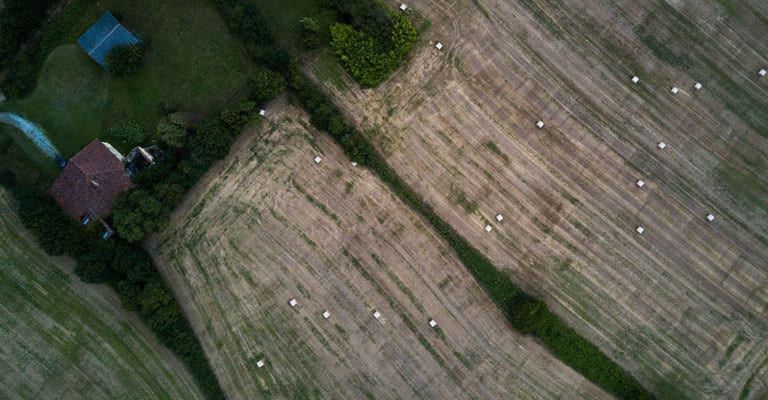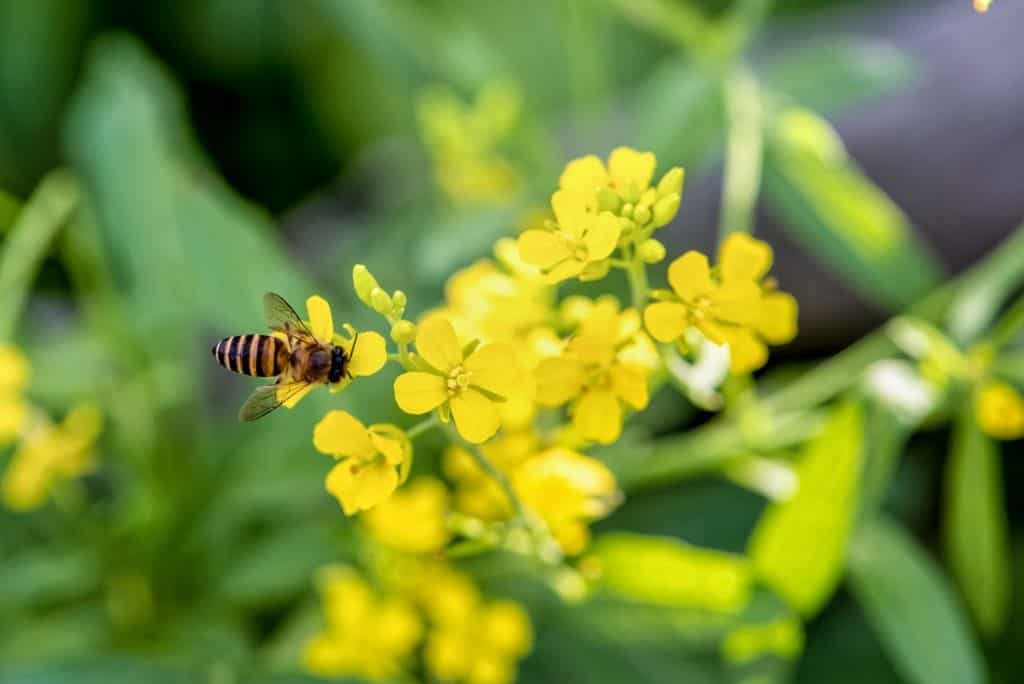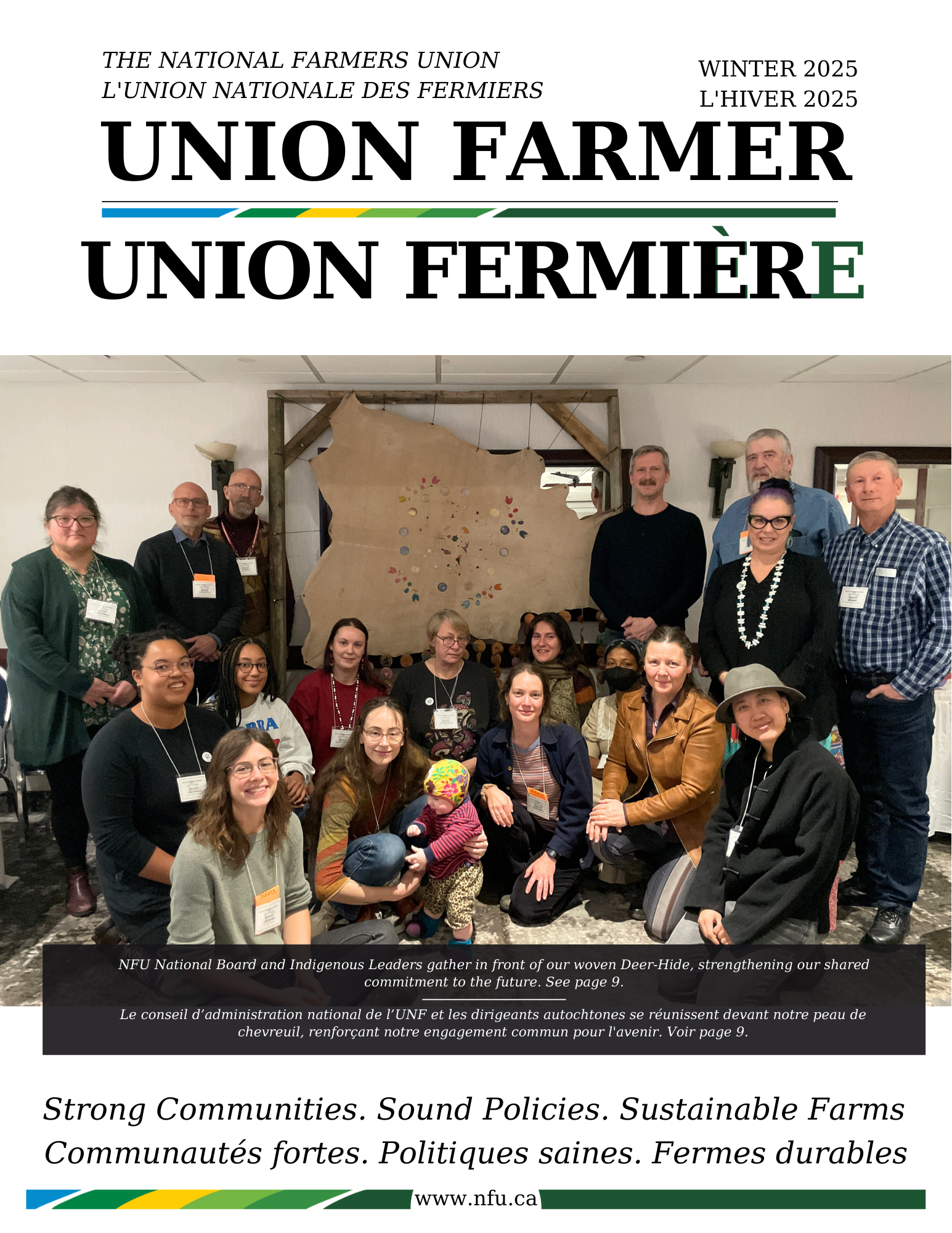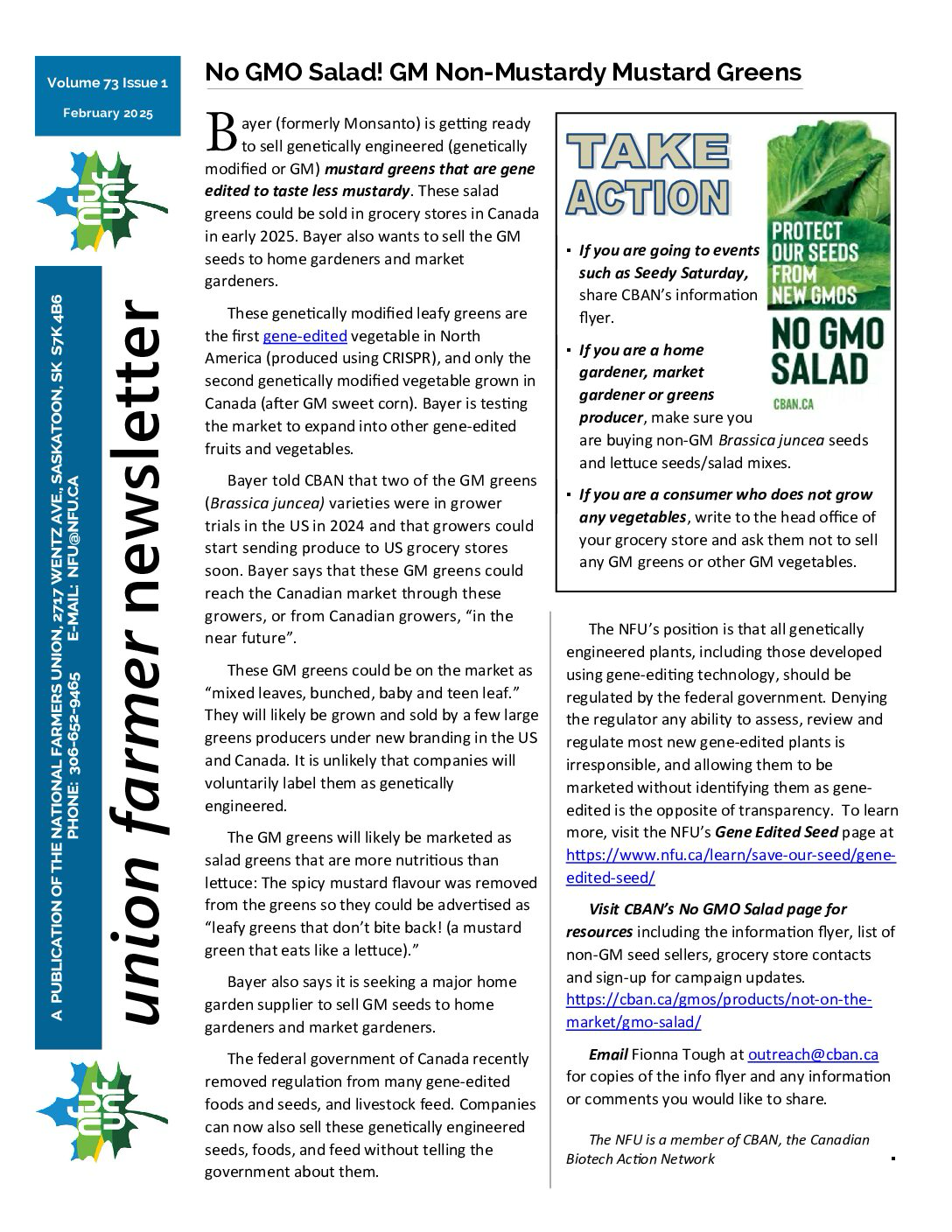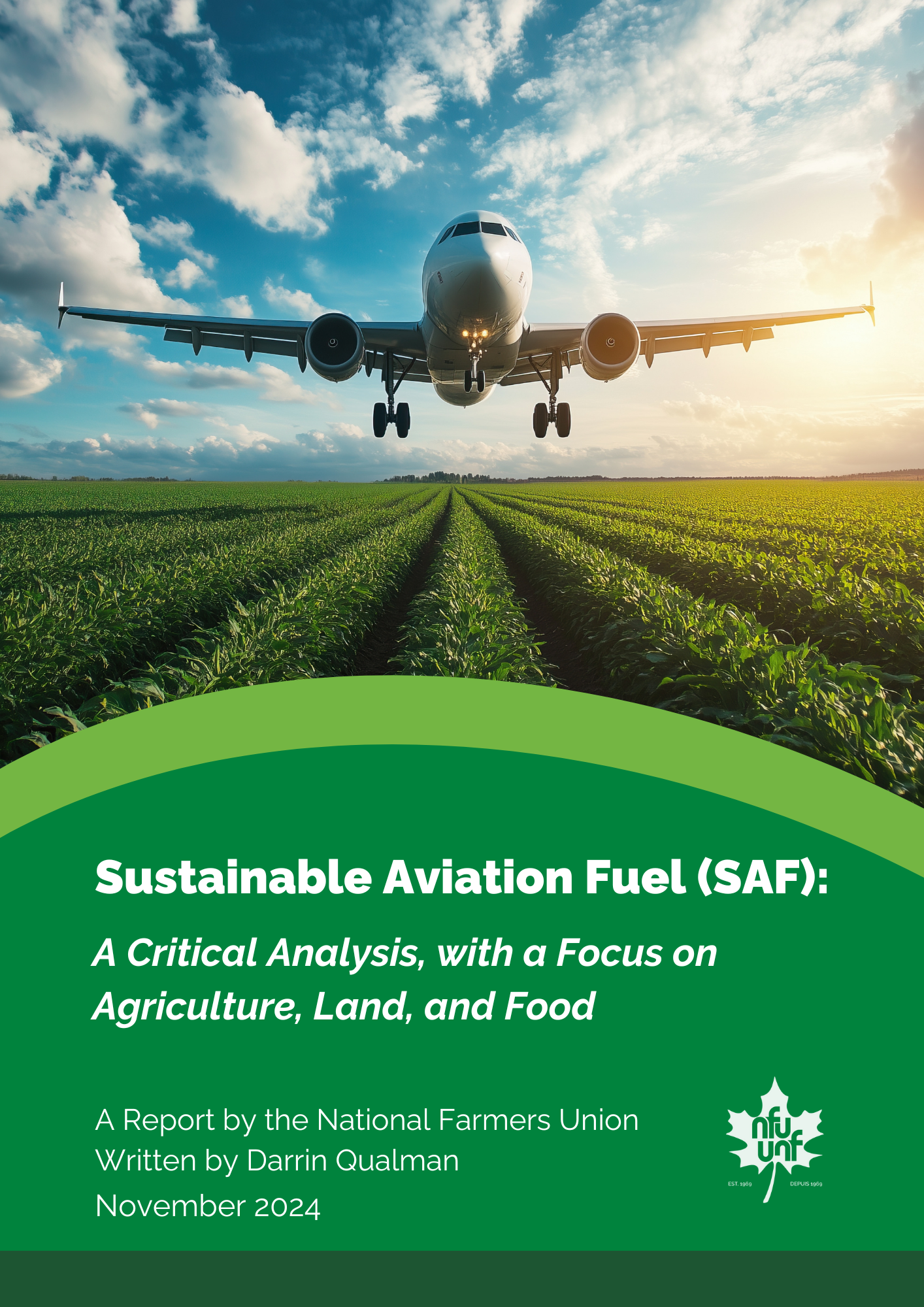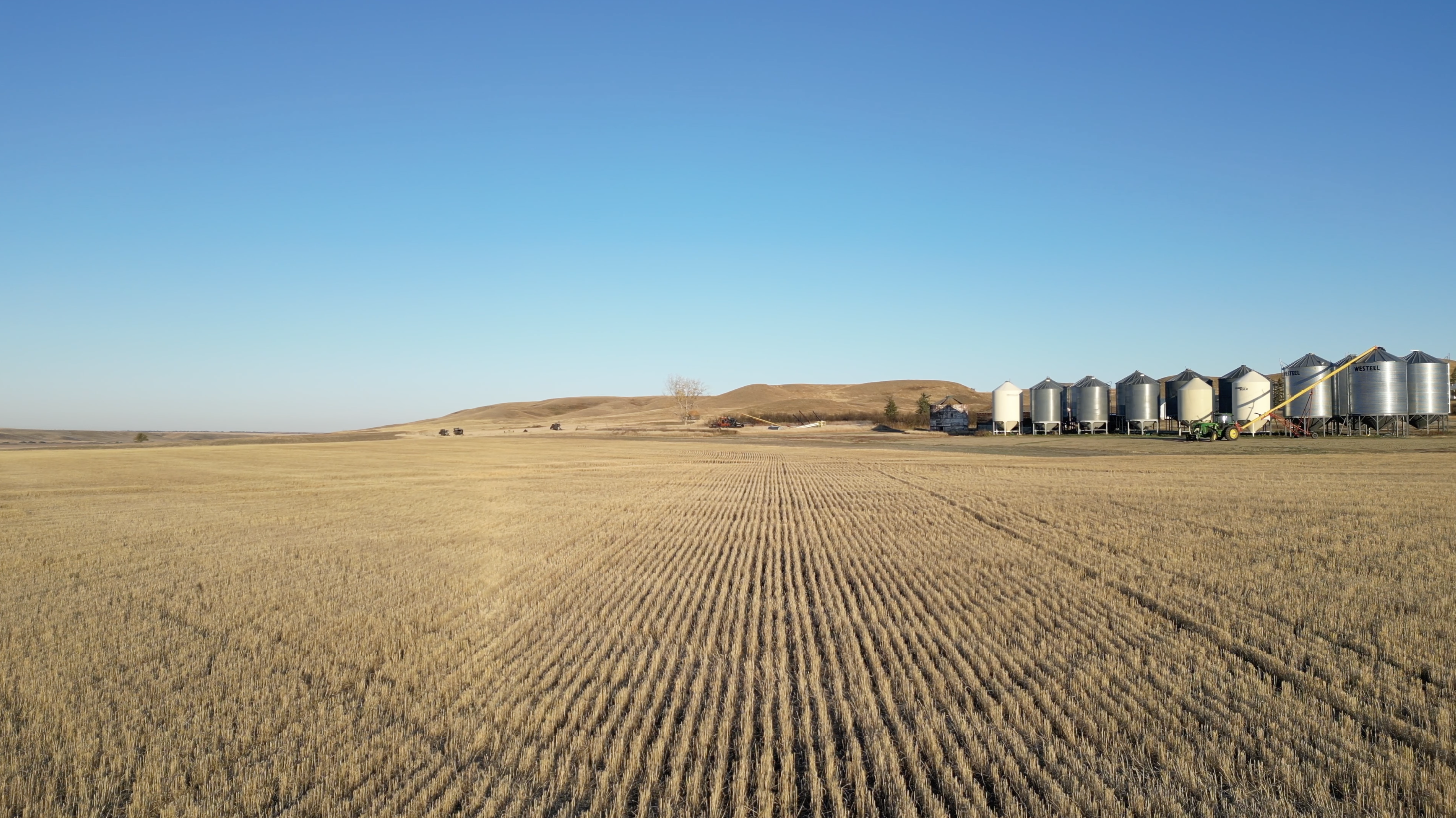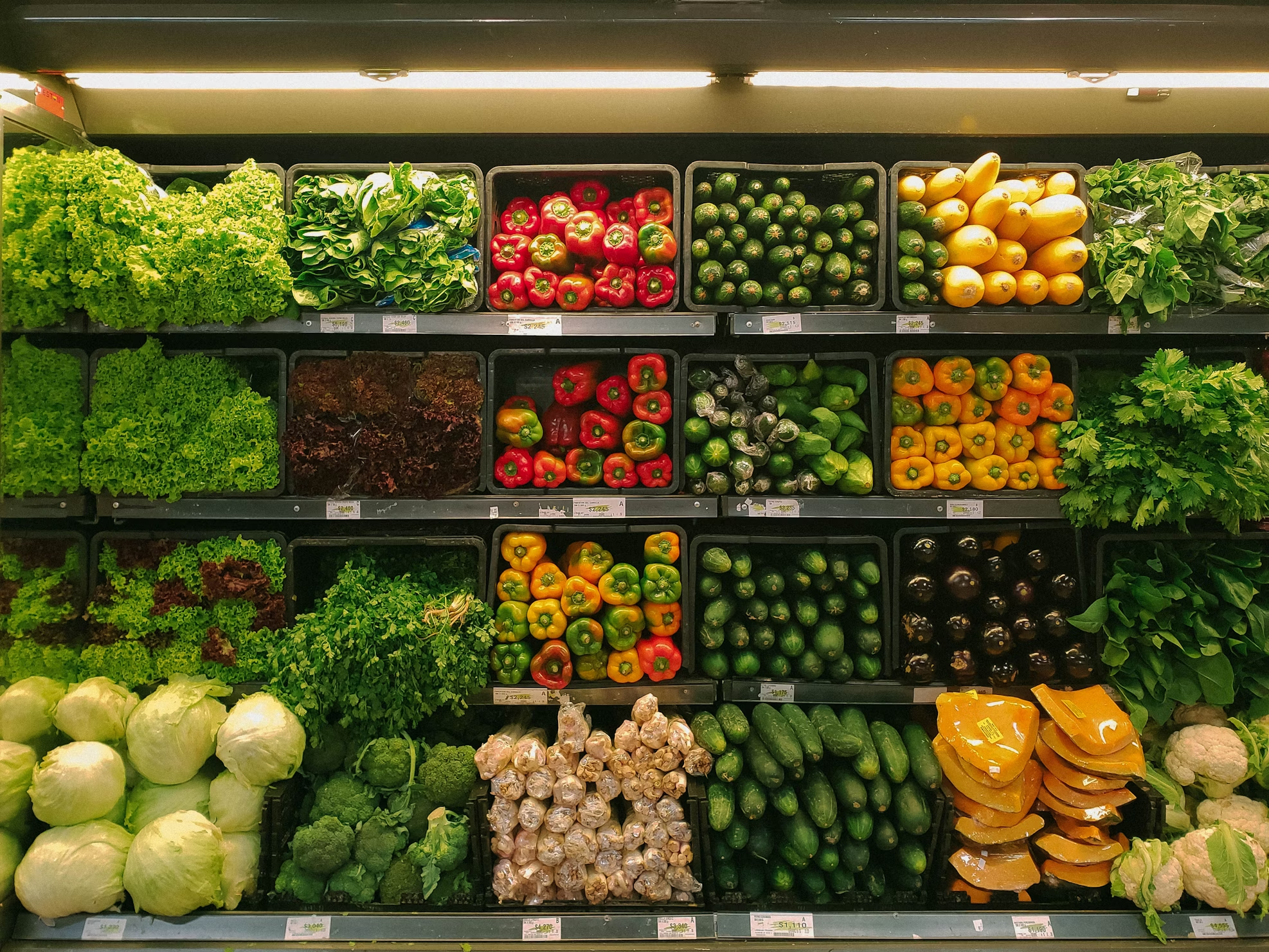
Learn about the issues
Issues facing farmers in Canada
The NFU communicates and researches an array of diverse farm topics. We recognize the connections between farm issues—from climate change, to farmland ownership, seed sovereignty, labour and orderly marketing. Thanks to our grassroots foundation and member engagement, our research is proudly independent and thoroughly reviewed.
We advocate for policies that support farmers and farm workers’ interests—for a food system grounded in the principles of food sovereignty.
As farmers and farm workers across Canada we are affected by many issues. Explore our well organized sections that give a broad overview and key resources for each area.
Depth of Field: Short Films About Farming
Depth of Field: Films About Farming is a series of short documentaries produced and presented by the NFU and March Forth Creative over 2022-2024.
The films showcase Canadian farmers and farm workers and their sustainable farming practices on and off the land. Rotational grazing, seed saving, building healthy soils, and working for social justice–different farms highlight their own priorities. Together, these unscripted films tell the story of the diverse farming practices that make up our food system.
NFUniversity
NFUniversity is our free winter webinar series exploring the complex challenges facing farmers today. Learn more about the series and register on the NFUniversity page!
Explore topics from Nitrogen fertilizer use, to modern free trade agreements, GMOs and agroecology. The NFU hosts experts from around the world to provide free learning materials to the public, including farmers, farm workers and the agriculture community. Sign up for live classes in the winter, or check out our library of past classes.
The Exchange
NFU’s newest project, THE EXCHANGE: Cultivating Diversity in Agriculture, will maximize the opportunities for equity-deserving farmers to succeed long-term in Canadian Agriculture.
This program will centralize information and offer support to each cohort to access training, grants, mentorship, and networking. Applications open August 2024.

NFU Policy
The National Farmers Union develops its positions on agricultural policy matters through a democratic process. Policy recommendations are presented as resolutions, debated and passed at the NFU’s National Convention each year.
Many of the resulting positions are more fully developed through research and analysis published as briefs and policy statements. We then present these documents to the relevant decision-makers and circulate them to members, the media, and the general public in order to advance a critical perspective on existing government policies and to promote alternatives that support the advancement of family farms and food sovereignty in Canada and internationally.
Recent Policy
NFU Publications
The National Farmers Union provides critical analysis of Canadian agriculture and society. All NFU policy is strictly grounded in solid research free from corporate or other influence.
Farmers and farm workers of diverse backgrounds, scales, and production types provide leadership and guide NFU policy work. It is through the collective voice of Canadian farmers that pro-farmer policies and programs can be secured.
Key Publications
The NFU’s top publications—dive deep into the issues that matter most.
Recent Publications
Latest News
The NFU publishes regular media releases, letters and opinion pieces on the most timely agricultural issues from across the country as well as stands in solidarity with international agricultural movements and farm-positive policy.


